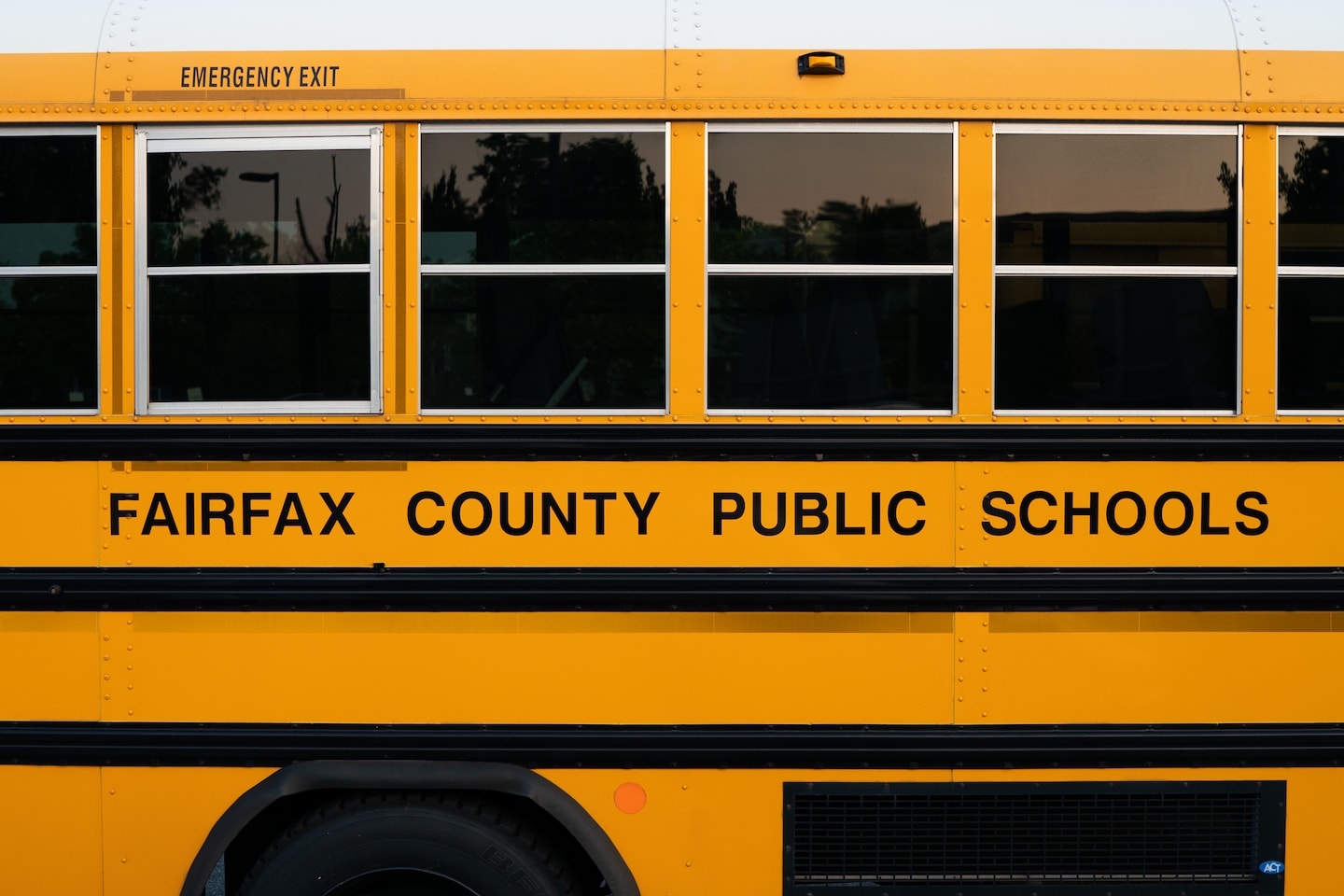
A Fairfax County Public Schools student is suing the school board, sayings its policy aimed at protecting the rights of transgender students violate the rights of others and violates the state constitution.
The lawsuit was filed by the conservative group America First Legal — founded by former Donald Trump adviser Stephen Miller — on behalf of an unnamed Fairfax high school senior. It alleges that the school district’s policy, which allows students to use facilities that match their gender identity and requires the use of a students chosen pronouns and name, are “fundamentally at odds with her religious beliefs” as a practicing Roman Catholic.
Fairfax County Public Schools spokeswoman Julie Allen said in a statement Wednesday that the district had not yet been served with the lawsuit and could not comment on the specific allegations. But she said the district’s policies are consistent with federal and state anti-discrimination laws.
“FCPS remains committed to fostering a safe, supportive, welcoming, and inclusive school environment for all students and staff,” Allen said. “Any student who has a need or desire for increased privacy in using a bathroom or locker room, regardless of the underlying reason, is provided with reasonable accommodations, including access to single user facilities.”
The lawsuit is the latest in a string of legal actions in recent years challenging the policies that Virginia schools have put in place addressing how to treat transgender and gender nonconforming students in school. It also is part of a wave of legislation in recent years targeting LGBTQ+ youth around the country.
In 2020, the Fairfax district adopted a policy that, among other things, establishes that students can use bathrooms and locker rooms that match their gender identity. Its student conduct handbook also says students could be disciplined for maliciously misgendering or deadnaming — calling someone by the name they no longer use — their peers.
The lawsuit filed this week in Fairfax Circuit Court states that, as a practicing Catholic, the student plaintiff does not believe that a person’s sex can be altered, and the district’s policy is unconstitutional because it forces her to either “violate her sincerely held religious beliefs” or risk getting disciplined for not using a transgender or nonbinary student’s name or pronoun. It further alleges the policy discriminates on the basis of religion by requiring the student to use her school’s single-use bathrooms to “be able to exercise her sincerely held religious beliefs.”
“Fairfax County Public Schools appears to believe that its policies and regulations can override the Virginia Constitution’s protections for religious beliefs, speech, and from government discrimination on the basis of sex and religious beliefs,” Ian Prior, a senior adviser with America First Legal, said in a statement. “It is well past time for FCPS to stop sacrificing the constitutional rights of its students so that it can implement a state-sanctioned ideology that demands compliance in speech, beliefs, and conduct.”
The Fairfax policy was adopted after the Virginia General Assembly passed a law in 2020 directing the commonwealth’s education department to develop guidance to address “common issues regarding transgender students in accordance with evidence-based best practices and include information, guidance, procedures, and standards.” In 2021, Gov. Ralph Northam (D) released the first set of model policies under the law, which called on schools to allow transgender students to use restrooms, locker rooms and changing facilities that match their gender identity. The policies also recommended that teachers accept students’ gender identities and use their pronouns.
At the time, conservative groups filed lawsuits to block implementation of the transgender guidelines. Around the same time in Loudoun County, a Christian teacher filed a lawsuit arguing he should not be forced to call transgender students by their pronouns given his beliefs.
Last summer, Gov. Glenn Youngkin (R), who took office in 2022, replaced Northam’s policies with new guidance that rolled back some protections with a new emphasis on “parental rights.” The new guidance policies direct students to use school facilities that match their biological sex and make it harder for students to change their name or pronouns at school.
Youngkin’s model policies were met with sharp criticism, sparking student walkouts and vows to take legal action. The policies were also praised by those who saw the guidance as the governor delivering on his campaign promise to protect parental rights in education.
Some have questioned whether the model policies from the Youngkin administration violated other preceding protections, like the Virginia Human Rights Act or the ruling in the legal case of Gavin Grimm, who sued his school board for excluding him from the boys’ bathroom at his school because he was transgender. The result has been a patchwork of policies around the state.
Fairfax was one of a handful of school systems that chose to fully reject Youngkin’s policies, stating that the district believed its current policies met the requirements of state and federal laws — a move that was praised by LGBTQ+ advocates in the county. Other districts have fully or partially adopted the policies, leading the ACLU of Virginia to recently file two lawsuits alleging that the new policies violate the law and discriminate against LGBTQ+ youth.
Elsewhere in Northern Virginia, Loudoun County Public Schools, which was thrust into a political upheaval over its transgender student policy in 2021, is still weighing whether to adopt the Youngkin administration’s model guidance. A school board committee discussed its current policy and the 2023 model policies last month. The district decided to seek more feedback from a focus group before revising the policy.
On Wednesday, FCPS Pride, an LGBTQ+ advocacy group, said in a statement that it hopes the Fairfax school board and district will fight claims made in the lawsuit.
“Students should know that our teachers, educators, caregivers, parents, and community members will defend you all to the end,” the organization said in a statement. “We will not allow such apparent on-line and in-person bullying of vulnerable children that seems to be described in the lawsuit.”



